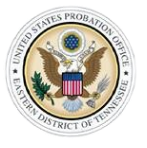Sex offender treatment is composed of a combination of individual, group, and family therapy whose detailed components are outlined in the treatment program requirements of the Tennessee Council on Sexual Offender Treatment.
In addition, personality testing and psycho-physiological test devices (i.e. polygraph and penile plethysmograph and/or ABEL Screen) are utilized in conjunction with therapy to monitor activities, treatment progress/participation, self-disclosure, community risk, and overall program compliance. You are expected to attend group sessions on a weekly basis, as well as individual counseling as indicated. During this process, you will address issues like relapse prevention knowledge and skills, thought restructuring, couple and family relations and reunification, interpersonal skills, sexual arousal control, social support networks, and victim awareness and empathy.
Some of the key treatment facts:
- Most individuals who sexually offend will benefit from treatment-oriented to reduce the risk of recidivism by using the most effective treatment interventions that are the standards of the profession (ATSA).
- Management of the factors that contribute to sexually abusive behavior is a life-long task for many adults who sexually offend.
- Internal motivation may improve an individual's participation in treatment. Although not always the case, many individuals who sexually offend will not request or comply with treatment or supervision requirements without external motivation such as being legally mandated to participate.
- Criminal investigation, prosecution, a court order, or similar directive requiring specialized sexual abuser treatment may be important components of effective intervention and management and may provide an impetus for treatment.
- The specialized evaluation will be required to determine treatment and/or supervision needs before releasing individuals who have sexually offended the community without treatment.
- Effective management of sexual abusers is enhanced by all parties, including the client, working collaboratively with probation/parole officers, child welfare workers, clients’ support persons, community members, victim advocates, and therapists who work with victims to increase community safety.
